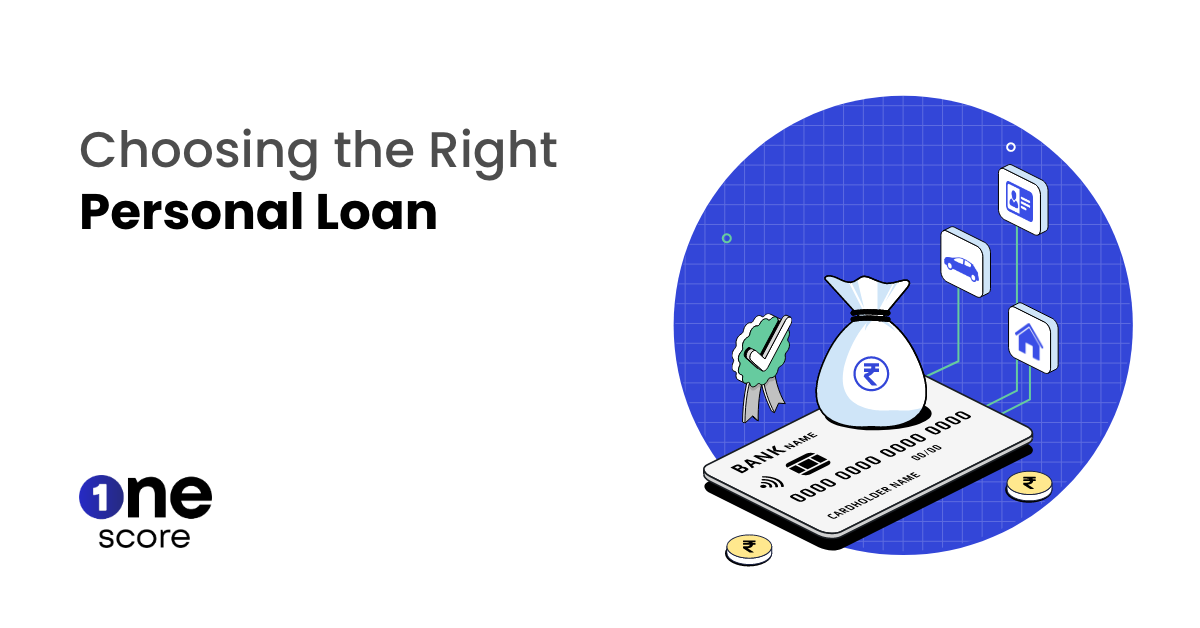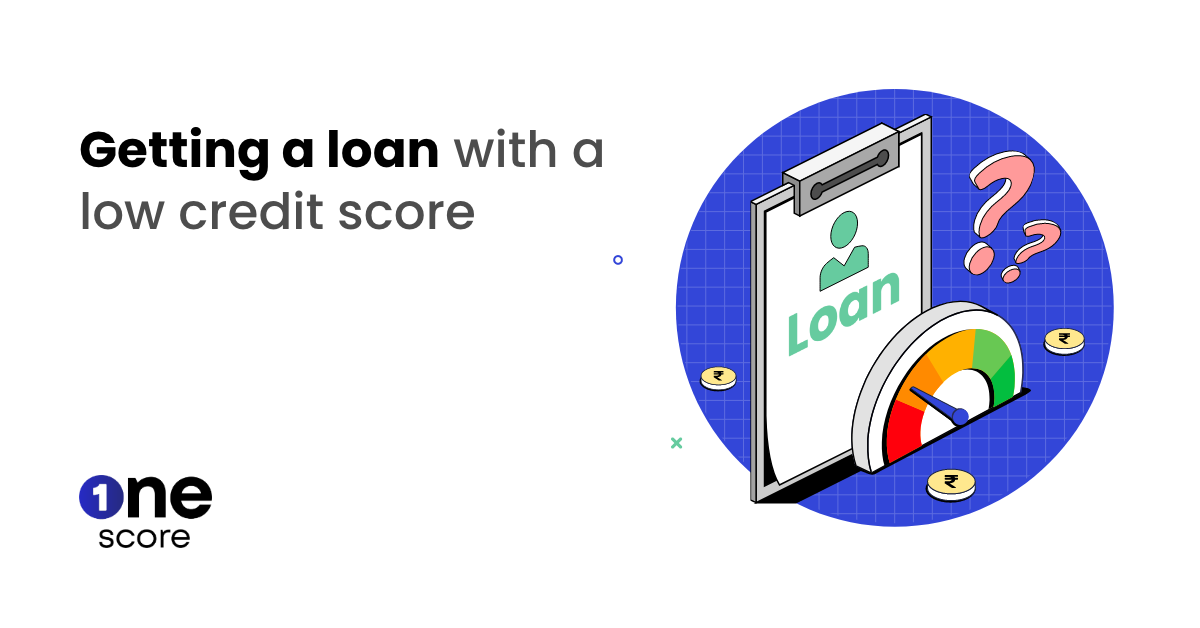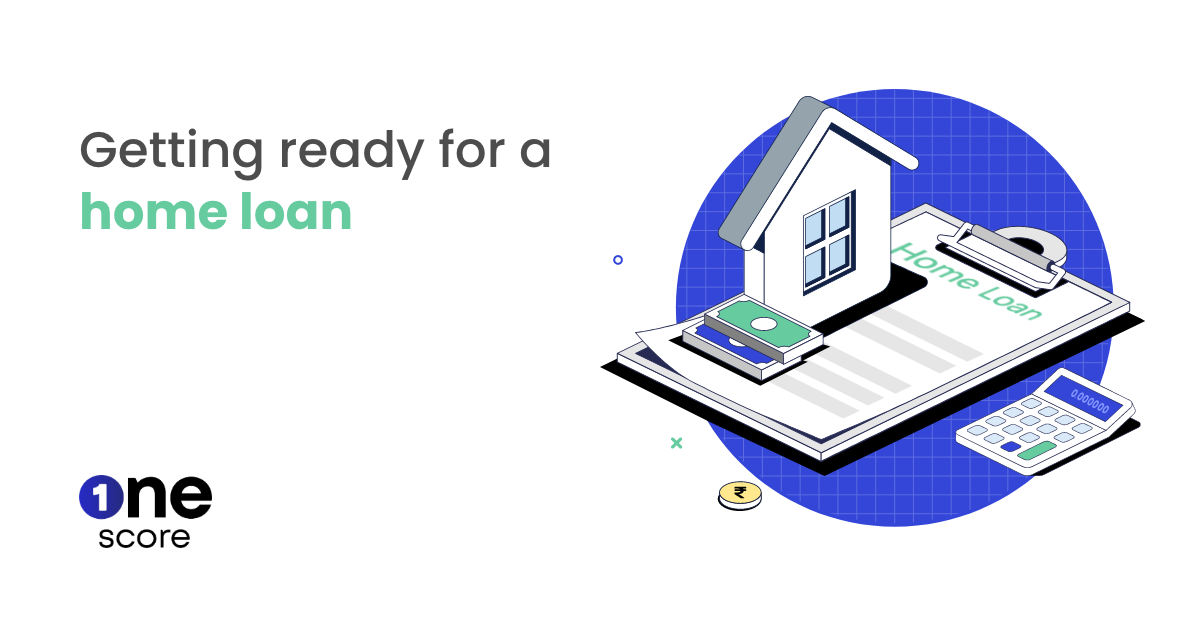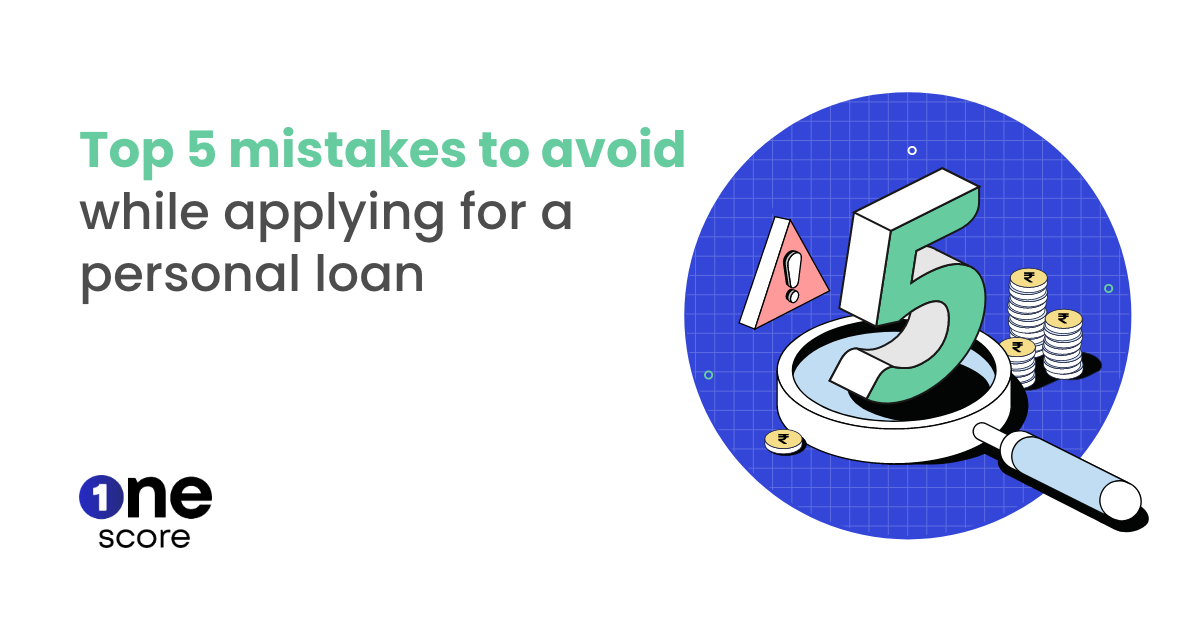How to Choose the Best Personal Loan in India?
Looking for the best Personal Loan in India? Learn tips to compare different types of loans and select the best personal loan provider online.

Listen to the article here:
Table of contents:
- Factors to consider while choosing a loan
- Documents needed for a personal loan
- How to improve your chances of getting a loan approved
Are you in need of some extra cash to cover an unexpected expense? Do you need financial support to fund a large purchase? If so, a personal loan could be just the solution you need! However, in the age of online and instant personal loans, choosing the best personal loan can be a task. You may not know where to begin, how to compare different lenders and choose the most cost-efficient option.
Fret not! This article will help you do all that and more.
What is a Personal Loan?
A personal loan is a type of loan that you can take from a bank, financial institution, or an online lender to borrow money for any personal need. You can use this money for things like paying for a wedding, renovating your house, going on a vacation, or even paying off an existing debt.
Unlike a home loan or car loan, a personal loan is an unsecured loan, which means that you do not have to provide any collateral to the lender. Instead, the lender will check your *creditworthiness before deciding to give you the loan.
* Creditworthiness is a person’s ability to borrow and repay the money. Lenders assess your creditworthiness by taking into account various factors such as your credit score, income, debt-to-income ratio, employment history, and any other outstanding debts or liabilities.
Factors to consider while choosing a Personal Loan
Before taking a loan, you must compare the following factors and find the best personal loan option available for you.
1. Interest Rate:
This is the amount charged over and above the loan principal amount. When you take a loan, you have to pay back the borrowed amount with interest. There are two types of Personal Loan interest rates: floating interest rate & fixed interest rate. Floating interest is generally lower than fixed interest, but it may change over the loan tenure, depending on market conditions. With lower interest rates, the loan becomes easy on your pocket.
2. Fees:
Besides interest rates, pay attention to any fees associated with the loan. Learn about the extra fees/charges levied by lenders below and factor them into your decision.
a. Processing Fee: When a lender issues a Personal Loan, they bear some administrative cost to sanction it. This one-time cost is passed on to the borrower as a processing fee. It is usually a percentage of the loan amount, typically 1% to 3%. However, some banks have capped the processing fee amount, irrespective of the loan amount.
b. Pre-payment/ Foreclosure Charges: When a borrower wants to pay off a part of the Personal Loan amount in advance, earlier than the agreed loan tenure, they must pay an early pay-off fee. This is called a pre-payment charge.
Foreclosure is when the borrower decides to pay back the loan amount in full before the end of the loan tenure. In such cases, you are charged a foreclosure fee.
Note* According to a guideline issued by the RBI on August 2nd, 2019, banks and NBFCs must eliminate foreclosure/prepayment penalties on floating interest rate term loans given to individual borrowers for non-business purposes. Therefore, borrowers must confirm that the lender has not included any prepayment penalties or foreclosure charges.
c. Loan Cancellation Charges: If you cancel your loan application after approval, you will have to pay loan cancellation charges.
d. Cheque Dishonor Charges: If a cheque deposited by you bounces, lenders may charge a cheque dishonor fee. Some lenders may charge higher fees for repeated instances of cheque dishonor. Ensure you have sufficient funds before writing a cheque for your EMIs.
3. Repayments:
The repayments will determine how much the borrower will pay each month, the duration of the loan, and the total amount of interest that will be paid over the life of the loan. Below are the repayment criteria that one should look at before applying for a personal loan.
• Repayment Terms: Repayment terms of a loan are listed in the loan document. This refers to the terms and conditions for paying back the money you borrowed in a personal loan. These conditions include interest rate, loan tenure, and how often you must repay.
• Repayment Options: Some lenders offer flexible repayment options, such as making biweekly payments or paying extra toward the principal. These options can help you repay the loan faster and save on interest. You can use the Personal Loan EMI calculator in the OneScore app, to better plan your payments.
4. The Loan Term:
The length of the loan term can affect your monthly payment and the total amount you’ll pay in interest. Consider what you can afford each month and how quickly you want to pay off the loan when choosing a loan term.
How to get a personal loan?
You can get a personal loan at banks, credit unions, and online lenders. Peer-to-peer loans are another option you can consider. If your credit score has taken a hit, you may approach private lenders who generally offer small loans at higher interest rates.
Also read: How to get a loan with a low credit score
What Documents are needed for a Personal Loan
You will need to provide the following documents:
• Proof of identity Passport, driver’s license, or national ID card.
• Proof of income Two latest salary slip certificates with the latest Form 16. If you are self-employed, you require proof showing how much profit was made each year since starting the business (for example, last year’s tax return).
• Bank Statement. Provide your bank statement for the past three months or your passbook for the past six months.
Found the article helpful? Download OneScore and stay in charge of your finances.
FAQs
1. What is the maximum repayment tenure I can opt for? Loan repayment tenures can vary widely depending on the type of loan and the lender’s policies. Repayment tenure for personal loans typically ranges from 1-5 years.
2. What is the age range when it comes to applying for a personal loan? Most lenders require borrowers to be at least 21 years old to apply for a personal loan. Some lenders might have an upper age limit of around 60 to 65 years.
3. What is the lowest interest rate when it comes to availing a personal loan? The lowest interest rates on personal loans could be around 9% to 10% per annum. However, it’s important to note that interest rates can change over time due to economic factors, policy changes, and individual lender decisions.
4. What is the maximum loan amount that I can borrow? The maximum amount you can get as a personal loan in India can vary significantly based on the lender, your credit history, your income, and other factors. Generally, personal loan amounts in India can range from as low as a few thousand rupees to several lakhs of rupees.
5. Why should I consider foreclosing my personal loan? Personal loans typically have a high interest rate, so you can save on interest by paying off the loan early. Foreclosure may also impact your credit score positively. However, you must check if there’s any foreclosure penalty you are being charged.
**Disclaimer: The information provided on this webpage does not, and is not intended to, constitute any kind of advice; instead, all the information available here is for general informational purposes only. FPL Consumer Services Private Limited and the author shall not be responsible for any direct/indirect/damages/loss incurred by the reader in making any decision based on the contents and information. Please consult your advisor before making any decision.




- OneScore , April 19, 2023

